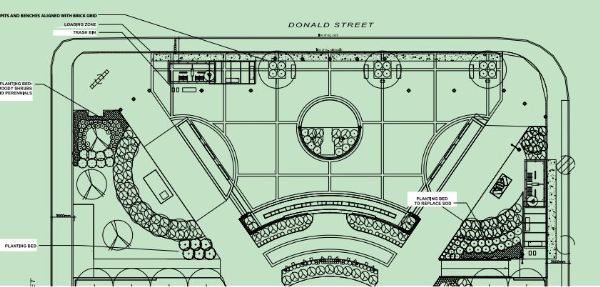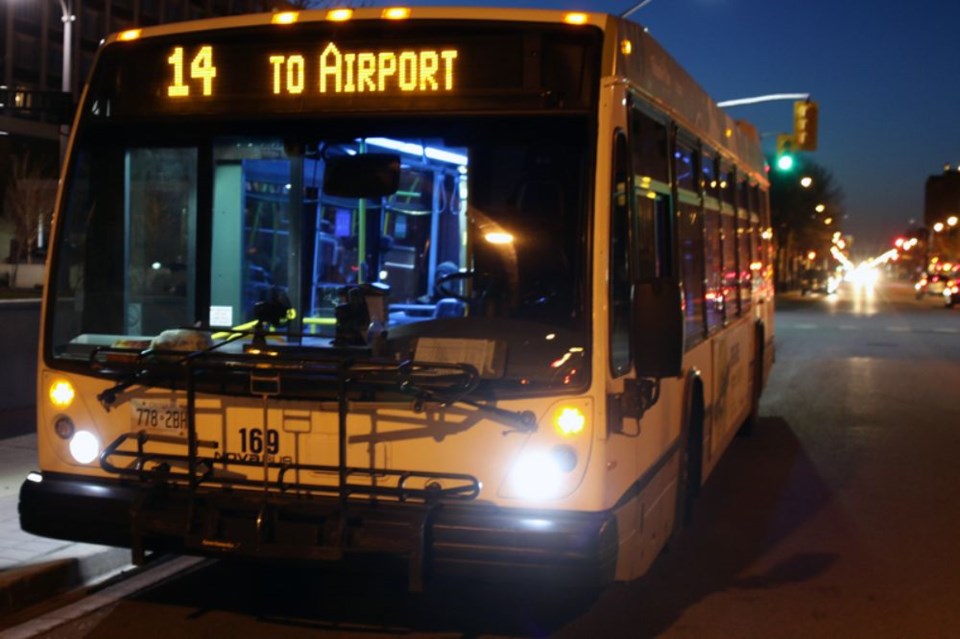THUNDER BAY – After six years as a temporary South Core Transit Hub, city hall has been designated its permanent site.
City Council voted 6-5 on Monday to approve the only option its administration offered, which was keeping the hub outside the building where the meeting was taking place.
Council voted to move the transit hub to city hall temporarily in 2010 when the former site on Miles Street was forced out for the the Thunder Bay Courthouse's construction.
Thunder Bay Transit manager Brad Loroff considered sites on Miles and Violet streets but said those alternatives inspired “serious concerns over passenger safety” and developing them would require “a great deal of capital expenditures.”
Loroff praised the city hall site for its lighting, sight lines, open space, surveillance and transfer safety. Air and noise pollution tests found both to be negligible.
City hall also won the approval of the transit operators’ union and the support of a majority of those surveyed on city buses as well as the 58 people who filled out online surveys.
It did not, however, win the support of business owners around McGillivray Square.
Gilbert Labine of Atwood Labine LLP located across Donald Street held nothing back in his deputation opposing the plan.
He accused administration’s report as sounding like a “ponzi scheme” as he told councilors they had lost his trust for going back on their promise that the site would be temporary.
 Labine claimed to see buses idling for 10 minutes, over three times longer than administration claims it allows. He also claimed to have questioned one man emptying hairspray into a sports drink bottle and found the man to have taken a bus from the north side and to have been drinking while waiting for a meal at Shelter House.
Labine claimed to see buses idling for 10 minutes, over three times longer than administration claims it allows. He also claimed to have questioned one man emptying hairspray into a sports drink bottle and found the man to have taken a bus from the north side and to have been drinking while waiting for a meal at Shelter House.
Labine correlated that experience with safety concerns his employees have leaving the office after dark, property crime and stray needles.
“The increase in crime, in vagrancy, in drug use, in drug deals – we’ve seen it firsthand. We’ve actually seen someone die on our front steps. When are you going to get the message?” Labine said.
“What you’re doing here in this decision is, you’re creating a ghetto in the South Core.”
Coun. Rebecca Johnson was among a number of councilors who didn’t accept the connection between the neighbourhood’s social issues and mass transit patrons.
“It’s my opinion only, that the busing has nothing to do with it. Wherever we have the buses, it’s going to be some challenges and some not but I don’t think that has anything to do with the location of it, here at city hall,” Johnson said.
“Do we have some social issues? Yes we do but we’re not going to make or break that by having a bus depot here. I don’t see that at all. They’re totally different, unrelated things.”
According to Thunder Bay Police Service Insp. Dan Taddeo, crime statistics in the South Core have fallen in all categories since 2009.
Police addressed 111 assaults in 2015 compared to a five-year high of 163 in 2011. There were 17 illegal drug calls last year compared to 38 in 2011. Where the neighbourhood saw 22 roberies in 2010 and 2011, there were 15 in 2015. Although alcohol-related incidents reached 466 last year compared to a five-year low of 266 in 2012, there were 538 such offences in 2009.

‘There was no big increase since transit moved its hub to this location,” Taddeo said.
“But I think it’s a very important comment that it’s very hard to have any correlation between transit being here and city hall just by its very nature, being a public place, especially when you’re looking at the number of Liquor License Act offences which, unfortunately, is by far the most prevalent enforcement action taken by the Thunder Bay Police Service.”
Amalgamated Transit Union 996 president Ken Koza was relieved with the vote’s result but pointed out there are social implications of stereotyping mass transit ridership with criminal behaviour.
“It was nice to see the separation between Thunder Bay Transit and the social issues of the Thunder Bay South Core. It isn’t particularly Thunder Bay Transit that causes those issues,” Koza said.
“To be honest, I would think the ridership might want to think about what was possibly said tonight. That perception is out there and obviously if that perception is out there, some work needs to be done on changing that perception.”
